Curated OER
Toward a Sustainable Agriculture
Learners analyze organic production systems. In this organic agriculture lesson, students examine key organic practices for both crop and livestock. This lesson includes 5 different activities, 4 critical thinking questions and...
Curated OER
Popular Paper
Students explore the benefits of recycling paper. In this recycling lesson plan, students use statistics to calculate the amount of paper that is thrown away each week and construct a graph. Students analyze the data and calculate the...
Curated OER
Clouds as Art: Torn Paper Landscape
Young scholars create a torn paper landscape and use it to study clouds. In this cloud study and art lesson, students make a background art image from torn paper. Young scholars create a torn paper landscape and use cotton balls to...
Curated OER
Posters and People
Students create and design posters reflecting the types of litter harmful to aquatic wildlife. They explain the dangers of fishing line to aquatic wildlife, plastic bags to dolphins, and fish nets to fish. They design a poster to...
Curated OER
Important Rivers of the World
Third graders become familiar with names of the different parts of a river, define and locate drainage basins, locate six of the continents and explore the major rivers on each one, conduct research on a river of their choice.
Curated OER
Marine Communities
Students view a video and then complete lab exercises to help them explain marine communities and animals in them.
Curated OER
Renewable vs. Non-Renewable Resources
Fifth graders, after brainstorming why conservation of resources is important, distinguish between renewable and non-renewable resources. They make a list of different types of natural resources on the board and then sort them into two...
Curated OER
World Wide Winds
Students recognize that global winds move in specific directions in specific latitudes and describe that in a written form. They relate the motion of the wind belts to historical navigation.
Curated OER
Needs and Wants
Students demonstrate responsible consumer choices. In this social studies lesson, students read The Lorax and discuss wants and needs. Students discuss how to save natural resources by making informed consumer choices.
Curated OER
Horticulture Crops in the agro-ecosystem
Ninth graders apply ecological analysis to fruit and vegetable production systems. In this horticulture activity students learn about different management practices.
TeachEngineering
Teach Engineering: The Other Water Cycle
For students that have already been introduced to the water cycle, this instructional activity is intended as a logical follow-up. Students will learn about human impacts on the water cycle that create a pathway for pollutants beginning...
BioEd Online
Bio Ed Online: Water
The Science of Water Teacher's Guide provides a number of inquiry-based activities for grades 3-5 (although it can be expanded for other grades). The guide contains science lessons that enable students to explore water, behavior of...
TeachEngineering
Teach Engineering: Introduction to Water Chemistry
Students are presented with examples of the types of problems that environmental engineers solve, specifically focusing on water quality issues. Topics include the importance of clean water, the scarcity of fresh water, tap water...
TeachEngineering
Teach Engineering: On the Move
Looking at models and maps, students explore different pathways and consequences of pollutant transport via the weather and water cycles. In an associated literacy activity, students develop skills of observation, recording and reporting...
BioEd Online
Bio Ed Online: River Ecology
In this lesson plan students are required to simulate activities that can affect a water source, such a river as it flows from one place to another within a community.
University of Arizona
University of Arizona: Pulse: Cultures and Cycles: Arsenic and Human Health
Interdisciplinary unit about the risk of exposure to arsenic in public drinking water. Math, language arts, social studies, and science are incorporated into the lessons.
US Geological Survey
Lake Pontchartrain Basin Foundation: Liquid Assets: Our Water Resources
Lessons designed to show students how water quality, water pollution, and personal lifestyle are related. Lessons help students understand the importance of our water resources and water quality. Students will explore the nonpoint and...
US Environmental Protection Agency
Epa: Excuse Me, Is This the Way to the Drain Pipe? [Pdf]
Ever wonder where your drinking water comes from? And what happens to it after you're done? "Excuse Me, Is this the Way to the Drain Pipe?" is a great story and lesson plan about a drop of water going through the water cycle and through...
Science Education Resource Center at Carleton College
Serc: Mn Step: Watersheds Urban and Rural
In this activity young scholars build models of two types of watersheds, one urban and one rural. They will then simulate rain or the water cycle and observe what happens to the 'soil.' This activity leads to discussions about the water...
Environmental Education for Kids
Eek!: Teacher Resources: Groundwater Study Guide [Pdf]
This study guide is designed to help students begin thinking about groundwater - where it comes from, why it's important, and how it can be conserved and protected. The guide includes a brief overview of groundwater, a glossary, and...
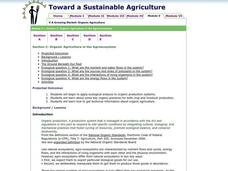


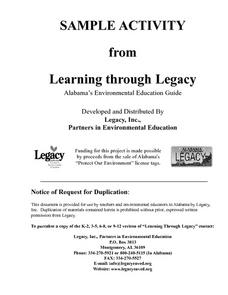
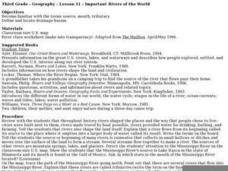


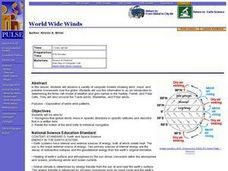




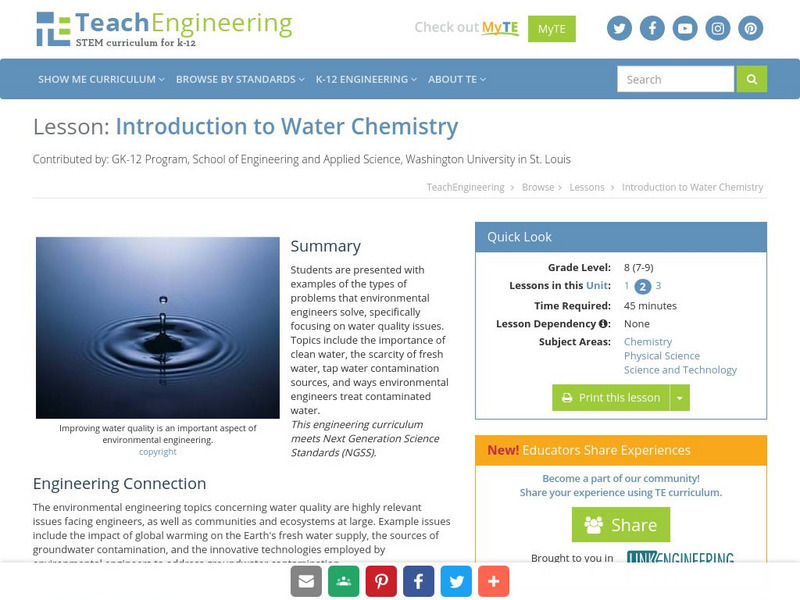
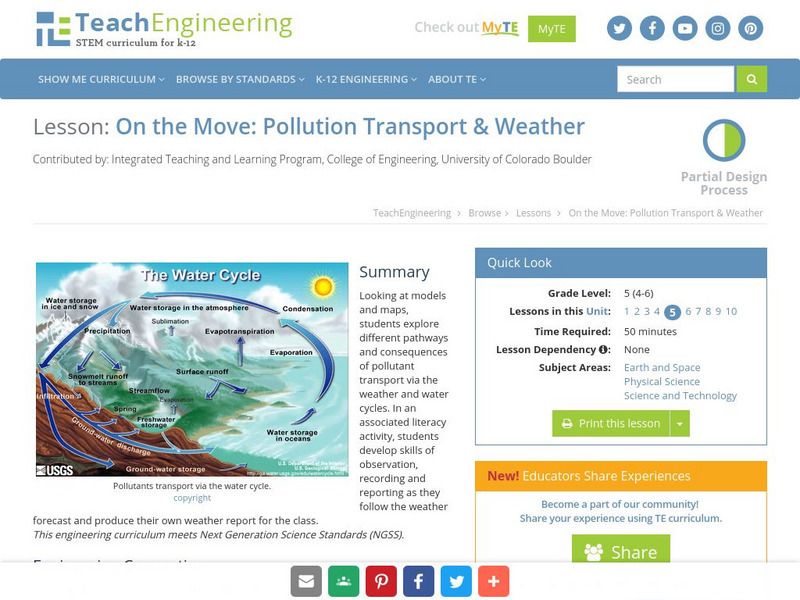
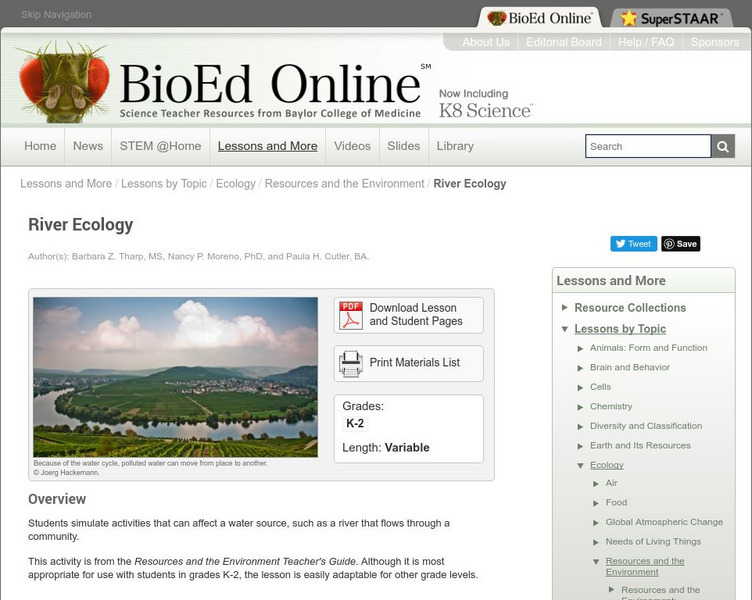


![Epa: Excuse Me, Is This the Way to the Drain Pipe? [Pdf] Lesson Plan Epa: Excuse Me, Is This the Way to the Drain Pipe? [Pdf] Lesson Plan](https://content.lessonplanet.com/knovation/original/38691-8e8499c77a908b9761fec8738a536bad.jpg?1661255988)

![Eek!: Teacher Resources: Groundwater Study Guide [Pdf] Lesson Plan Eek!: Teacher Resources: Groundwater Study Guide [Pdf] Lesson Plan](https://d15y2dacu3jp90.cloudfront.net/images/attachment_defaults/resource/large/FPO-knovation.png)